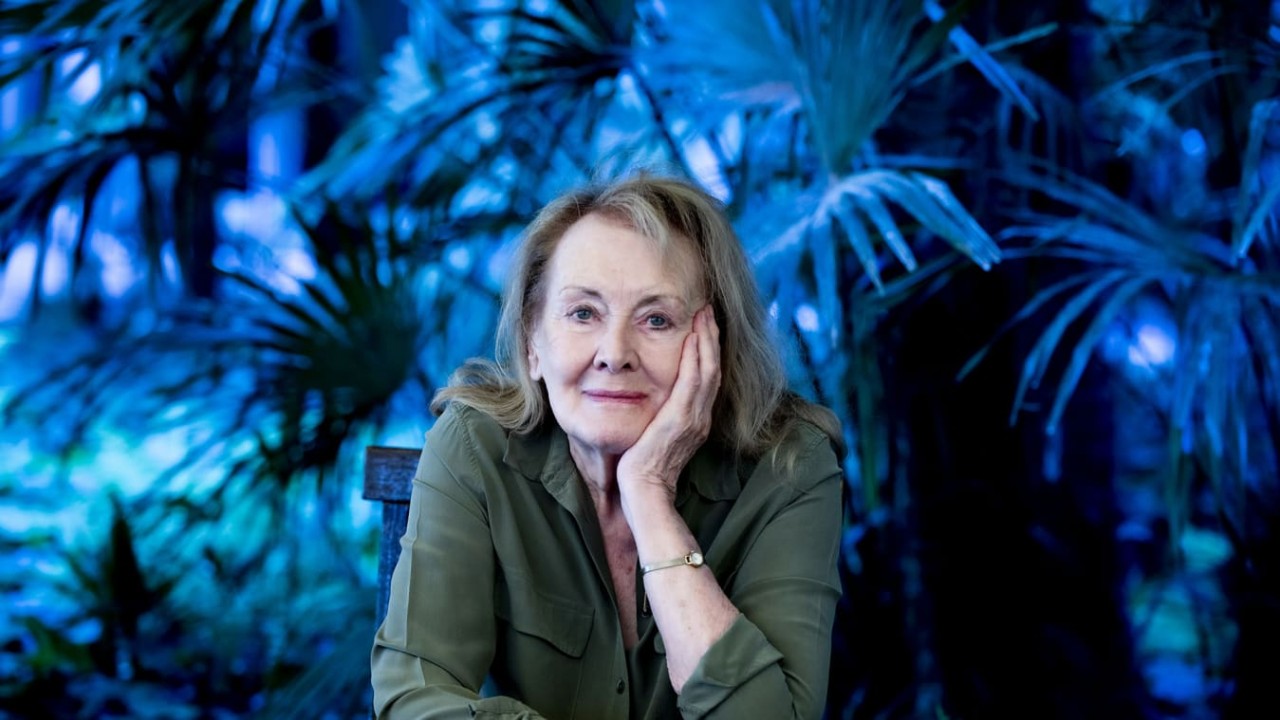 |
| Photo: Getty Images |
Ernaux, 82, has written a number of celebrated novels, many of which are autobiographical. Her first book, “Les armoires vides,” was published in French in 1974, and in English as “Cleaned Out” in 1990. Her fourth work, “La place” (1983) or “A Man’s Place” (1992), elevated her to prominence.
She was given the prestigious award “for the courage and clinical acuity with which she uncovers the roots, estrangements, and collective restraints of personal memory.”
Ernaux’s work is closely inspired by her own life and contemplates family, class, politics, and gender.
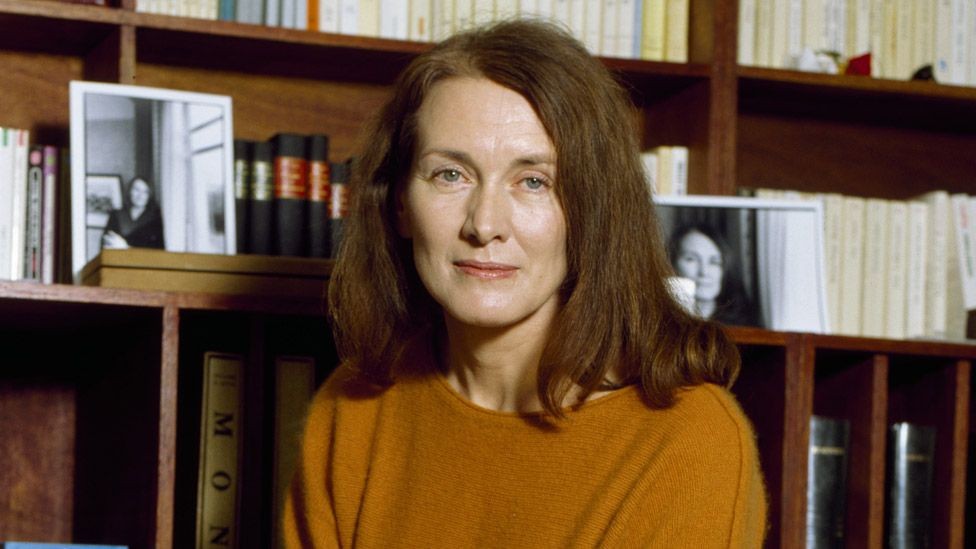 |
| Photo: Getty Images |
“Her work is uncompromising and written in plain language, scraped clean,” Anders Olsson of the Swedish Academy said on Thursday as he announced her accolade.
“And when she with great courage and clinical acuity reveals the agony of the experience of class, describing shame, humiliation, jealousy or inability to see who you are, she has achieved something admirable and enduring,” Olsson added.
Organizers told reporters on Thursday they focused on literary quality and not on sending a message to the world when choosing the award. But Ernaux’s victory shines a light on her writing about abortion, months after the US Supreme Court overturned Roe v. Wade.
Her novel “Happening” details her experience of getting a dangerous backstreet abortion in 1963, when the procedure was illegal in France.
“There were thousands who had been through secret abortions, I wanted to recreate the truth of it exactly as it was in the moment, ridding myself of any knowledge of the fight for women’s rights that would follow,” the author told the Guardian in 2019. “Because in 1963, 1964 when it happened to me, it was unthinkable to imagine abortion would one day be authorized, doctors wouldn’t even say the word.”
Annie Ernaux – Biography
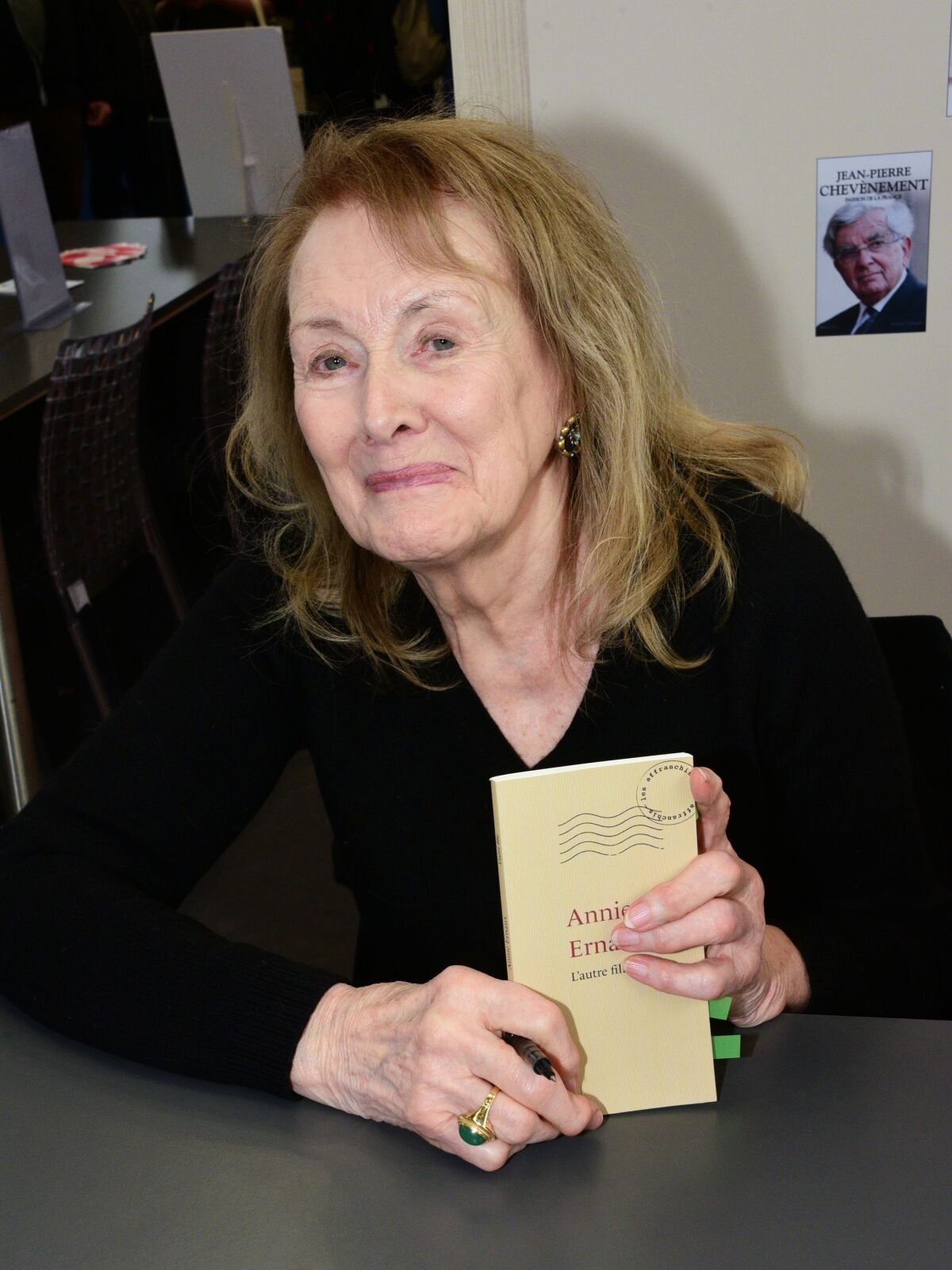 |
| Photo: LA Times |
Annie Thérèse Blanche Ernaux (née Duchesne; born September 1st, 1940) is a French writer, professor of literature, and Nobel laureate. Her literary work, mostly autobiographical, maintains close links with sociology. Ernaux was awarded the 2022 Nobel Prize in Literature “for the courage and clinical acuity with which she uncovers the roots, estrangements and collective restraints of personal memory”.
Early life and education
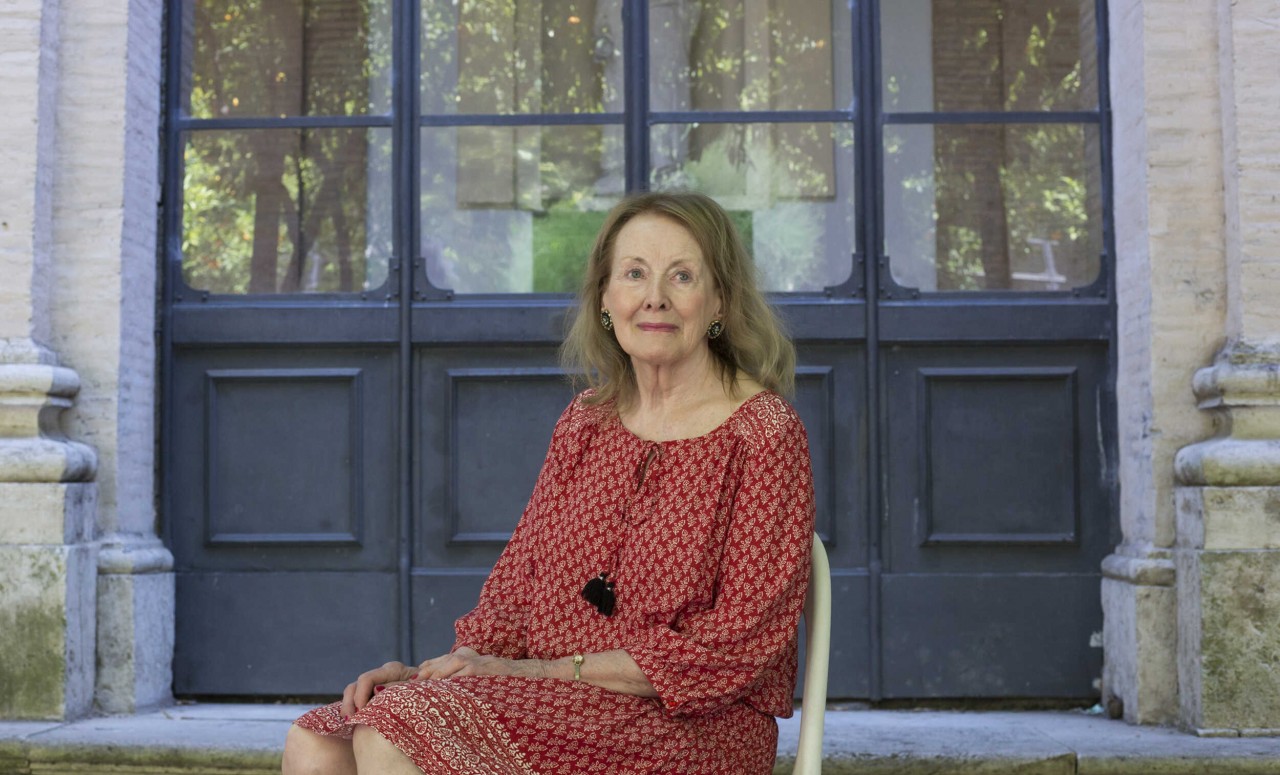 |
| Credit: Paradisi Alessia/Sipa USA |
Ernaux was born in Lillebonne in Normandy and grew up in nearby Yvetot, where her parents ran a café and grocery in a working-class part of town. In 1960 she traveled to London where she worked as an au pair, an experience she would later relate in 2016’s Mémoire de fille (A Girl’s Story). Upon returning to France, she studied at the universities of Rouen and then Bordeaux, qualified as a schoolteacher, and earned a higher degree in modern literature in 1971. She worked for a time on a thesis project, unfinished, on Pierre de Marivaux.
In the early 1970s, Ernaux taught at a lycée in Bonneville, Haute-Savoie, at the college of Évire in Annecy-le-Vieux, then in Pontoise, before joining the National Centre for Distance Education (Centre national d’enseignement à distance – CNED) where she was employed for 23 years.
Literary Career
Since the publication of her first book, Cleaned Out, in 1974, Annie Ernaux’s writing has continued to explore not only her own life experience but also that of her generation, her parents, women, and anonymous others encountered in public space, the forgotten.
The main themes threaded through her work over more than four decades, are the body and sexuality; intimate relationships; social inequality and the experience of changing class through education; time and memory; and the overarching question of how to write these life experiences.
In Ernaux’s work the most personal, the most intimate experiences – whether of grieving, classed shame, nascent sexuality, passion, illegal abortion, illness, or the perception of time – are always understood as shared by others, and reflective of the social, political and cultural context in which they occur.
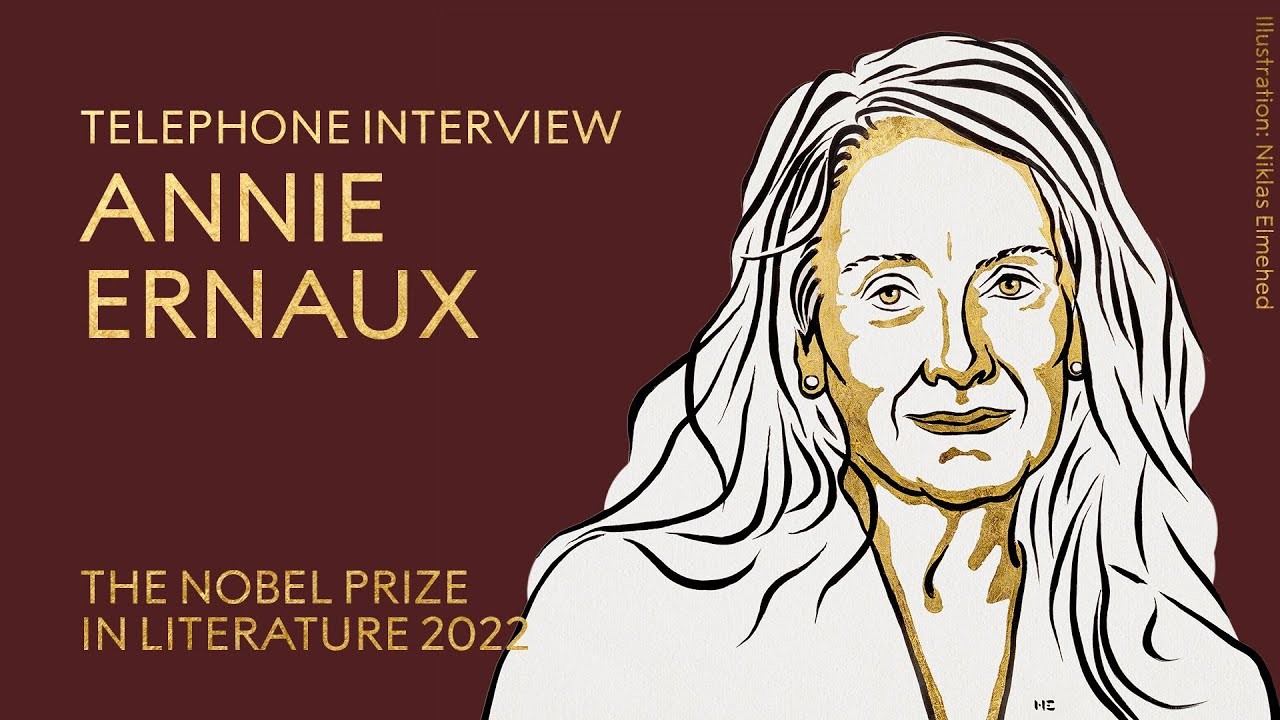 |
| Photo: Nobel Prize |
Having published three autobiographical novels (Cleaned Out, What they say goes and The Frozen Woman), Ernaux turned away from fiction with the publication of A Man’s Place. In this process she has invented narrative forms that constitute new directions in life writing: autosociobiographical texts, such as A Man’s Place, A Woman’s Story and Shame explore her own life and that of her parents, but also the social milieu in which those lives evolved, while the collective autobiography, The Years, covers the social and cultural history of France since her birth in 1940 to 2007.
Ernaux has also published diary extracts (‘I remain in Darkness’, Getting Lost) and ‘diaries of the outside’, where she describes her encounters with others in public spaces such as supermarkets, trains and the Paris metro (Exteriors, Things Seen, ‘Look at the Pretty Lights Darling’/ ‘Regarde les lumières, mon amour’).
She focuses on the process of writing in her notes on work in progress (‘The Dark Workshop’/ L’Atelier noir), a dialogue with another writer (‘Writing sharp as a knife’/ L’Écriture comme un couteau, with Frédéric-Yves Jeannet), and memoirs that link the description of intensely personal experiences with reflections on writing (Simple Passion, Happening, The Possession, A Girl’s Story, ‘The Young man’/ Le Jeune homme).
Two works, ‘The Uses of Photography’/ L’Usage de la photo and ‘Writing Life’/ Écrire la vie explore the relationship between writing and photographic representations of the past, while in ‘The Other Daughter’/ L’Autre fille Ernaux writes a letter to the sister who died before her birth. Finally, Ernaux has published discussions of her relationship with the significant places of her life (‘Where I belong’/ Le Vrai lieu; ‘Return to Yvetot’/ Retour à Yvetot)
Ernaux’s books are followed by a faithful readership and are reviewed in most local and national newspapers in France, as well as being the subject of many radio and television interviews and programs, and a large and growing international academic literature.
Personal life
Ernaux was previously married to Philippe Ernaux, with whom she has two sons. The couple divorced in the early 1980s.
She has been a resident of Cergy-Pontoise, a new town in the Paris suburbs, since the mid-1970s.
Who Is Anton Zeilinger – One Of The Three Nobel Winner Of Quantum Physics?
Anton Zeilinger is Nobel Prize in Physics 2022 “for experiments with entangled photons, establishing the violation of Bell inequalities and pioneering quantum information science“. The award was announced on 4 October 2022 by Professor Hans Ellegren, Secretary General of the Royal Swedish Academy of Sciences.








